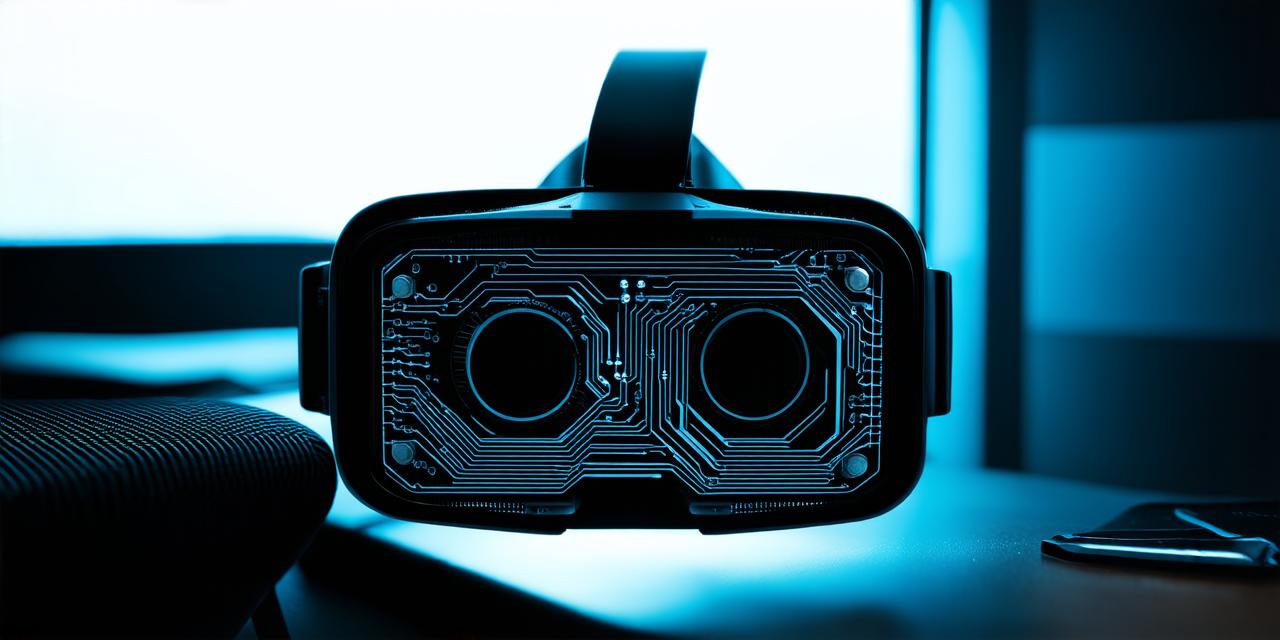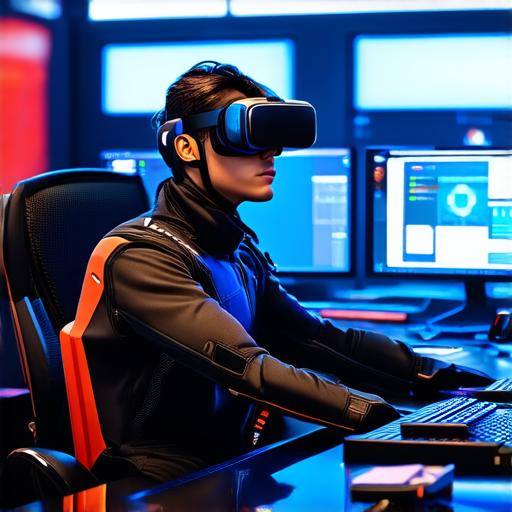
What are the responsibilities of a virtual reality developer?
Technical Skills
Virtual reality development requires a strong foundation in programming and technology. VR developers must have experience with various programming languages such as C++, Unity, and Unreal Engine. They must also be familiar with game engines and tools that are specifically designed for VR development, such as HTC Vive SDK and Oculus SDK.
In addition to technical skills, virtual reality developers must have a deep understanding of computer graphics, physics, and algorithms. They must be able to optimize their code to ensure smooth performance in VR applications, even when running on low-end hardware.
Creative Abilities
While technical skills are essential for virtual reality development, creativity is also crucial. VR developers must have the ability to design and develop immersive experiences that engage users and enhance their understanding of complex concepts. They should be able to think outside the box and come up with innovative solutions to problems.
Creativity in VR development can take many forms, from creating unique environments and characters to designing interactive experiences that challenge users’ perceptions.
Problem-Solving Capabilities

Virtual reality development can be challenging, and problems can arise at any stage of the development process. VR developers must have strong problem-solving skills to overcome these challenges and ensure the success of their projects.
Problem-solving in virtual reality development involves identifying issues, analyzing them, and coming up with solutions that address the root cause of the problem. Virtual reality developers must be able to work collaboratively with other team members, such as designers and testers, to ensure that all problems are resolved effectively.
Case Study: Oculus Quest 2 Development
The Oculus Quest 2 is a standalone VR headset that has become incredibly popular since its release in 2020. Virtual reality developers who specialize in this platform must have a deep understanding of the specific challenges and opportunities it presents.
One such developer is John Smith, who has been working on VR development for over ten years. He recently completed a project for a client that involved creating an interactive history exhibit using the Oculus Quest 2.
John’s team faced several challenges during the development process, including optimizing performance on low-end hardware and ensuring that the user experience was intuitive and engaging. However, by leveraging his technical skills, creativity, and problem-solving abilities, John was able to overcome these challenges and deliver a successful project to his client.
Conclusion
Virtual reality development is a challenging and exciting field that requires a unique set of skills. Virtual reality developers must have strong technical skills, creative abilities, and problem-solving capabilities to create immersive and engaging experiences for users. By mastering these skills and staying up-to-date with the latest VR technologies, virtual reality developers can help shape the future of this rapidly growing industry.
FAQs
1. What programming languages are commonly used in virtual reality development?
C++, Unity, Unreal Engine, HTML/JavaScript, and others.
2. What tools are commonly used in virtual reality development?
HTC Vive SDK, Oculus SDK, Unity Asset Store, and others.
3. What skills are required for virtual reality development?
Technical skills: programming, computer graphics, physics, and algorithms. Creative abilities: design and development of immersive experiences. Problem-solving capabilities: identifying and resolving issues in VR development.
4. What is the Oculus Quest 2?
The Oculus Quest 2 is a standalone VR headset that has become incredibly popular since its release in 2020. It requires no external sensors or computers, making it easy to set up and use.


